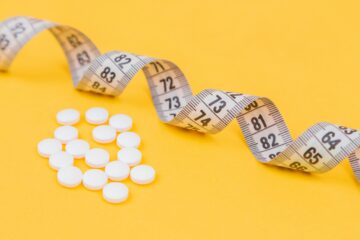With a low-carb diet, you consume more protein and fat and fewer carbohydrates. This is also referred to as the keto diet. Not all low-carb diets, however, result in ketosis. Carbohydrates, or carbs, are one of three major food groups that the body requires to function correctly. Protein and fat make up the other two. The body gets its energy from carbs.
Carbohydrates are converted by the body for immediate or later usage. When the body does not immediately require carbohydrates for energy, it stores them in the muscles and liver for later use. Yet if the body does not use these carbohydrates that are stored, it turns them into fat.
How Does the Human Body Deal with Carbohydrates?
Complex carbohydrates are often digested more slowly. Complex carbohydrates also affect blood sugar levels less than refined carbohydrates do, and they have fiber in them. Processed food is frequently supplemented with refined carbohydrates like white flour or sugar. White bread and spaghetti, cookies, cake, candy, and sugar-sweetened sodas and drinks are all examples of refined carbohydrate foods.
Carbohydrates are the body’s primary energy source. Complex carbohydrates are converted during digestion into simple sugars, sometimes known as glucose, and delivered into the bloodstream. This is referred to as blood glucose. Insulin is released to facilitate the entry of glucose into the body’s cells, which can be used as fuel. Excess glucose is stored in the liver and muscles. Part of it is converted to body fat.
A low-carb diet is designed to make the body burn fat that is already stored as energy, which results in weight loss.
Low-Carb Diet Benefits:
It Drops the Level of Triglycerides:
Triglycerides have been linked to cardiovascular issues. These are essentially little fat molecules that circulate in the blood. A higher quantity could result in accumulation in the veins, which would restrict blood flow to your heart and raise your chance of suffering a cardiac arrest. As people reduce their carbohydrate intake, their blood triglycerides drop dramatically.
Leads To More Weight Loss:
One of the simplest and most efficient strategies to lose weight is to reduce your carb intake. This is because low-carb diets help your body get rid of extra water, which lowers insulin levels and causes you to lose weight quickly in the first week or two.
Studies comparing low-carb and low-fat diets show that those who limit their carbohydrate intake occasionally lose 2-3 times as much weight without feeling hungry.
Reduces Harmful Abdominal Fat:
Your body has many types of fat. Your health and risk of the disease depend on where your fat is stored. The two primary forms are visceral fat, which builds up in the abdomen and is common in most overweight men, and subcutaneous fat, which is found beneath the skin.
Visceral fat tends to collect around your organs. Excess visceral fat is linked to inflammation and insulin resistance and may contribute to the metabolic dysfunction that is so common in the West today.
Diets low in carbohydrates are highly successful at shedding this dangerous belly fat. In fact, a larger share of the fat that people lose when they follow a low-carb diet appears to come from their abdomen. This should eventually result in a significantly lower chance of developing heart disease and type 2 diabetes
Keeps Your Metabolism in Control:
A good metabolism not only aids in weight loss but also maintains your general well-being. Your metabolism determines digestion, blood pressure, sugar level, and cholesterol absorption. Your metabolism may be most negatively impacted by a high-carb diet. That is why we advise choosing a low-carb diet because it will prevent you from developing a number of illnesses.
Low-Crab Diet Foods:
- Non-starchy vegetables (such as zucchini, broccoli, cauliflower, cabbage, spinach, and lettuce)
- Meat (includes beef, poultry, pork, and lamb)
- Seafood and fish
- Eggs
- Dairy (includes cheese, butter, cream, and yogurt)
- Fruits with low carbohydrate content (berries, cherries, plums, kiwi, and melon)
- Seeds and Nuts (including nut butter)
- Added fats such as olive, canola, and soybean oils
Foods To Avoid on Low-Carb Diet:
- bread
- pasta
- potatoes, and other starchy vegetables
- grains such as rice and corn, oatmeal, beans, and lentils
- milk
- sugar
- sweets such as cookies, candy, and ice cream
- beer
- soda
- higher-carb fruits like bananas, grapes, and apples.
Low-Crab Diet Tips:
- You Should become aware of low-carbohydrate foods.
- Be aware of meal portion sizes and carb counts: The majority of low-carb diets only permit 20–50g of carbohydrates per day. Because of this, it’s crucial for persons on low-carb diets to select meals that are high in nutritional content per serving despite having less carbs.
- Prepare your meals in advance. Making a meal plan can help people stick to their diet.
- Consider carb cycling: Carb cycling entails eating very low-carb foods for a certain number of days, followed by one day of higher-carb meals. With less carbohydrate intake, the body is better able to escape fat-burning plateaus that might occur after a few weeks.
- Exercise: A crucial component of general health is exercise. Nonetheless, excessive exercise should be avoided.
One-Day Meal Prep:
Breakfast:
Vegetable omelet with avocado on top
Lunch:
Burrito bowl (no rice or beans) with extra fajita vegetables, extra meat (your choice), cheese, guacamole, and salsa
Dinner:
Butter-topped half of sweet potato, mixed roasted veggies (such as broccoli or cauliflower), and grilled chicken breast
Snack:
Mixed berries with almond butter on top
To Sum Up:
Most people follow low-carb diets to reduce weight, and research shows that a moderately low-carbohydrate diet can be heart-healthy when low in saturated fat. Although it has certain negative effects, may result in vitamin insufficiency, and can be relatively expensive, it may also improve heart health, and reduce insulin resistance, and visceral obesity.
Those who follow a low-carb diet must eat sensibly and avoid overindulging in specific items, such as extremely fatty meats. Before making any significant adjustments, people who are trying to lose weight or who are thinking about adopting a low-carb diet should consult with their doctor or nutritionist.
Other Options for Health Diet:





0 Comments